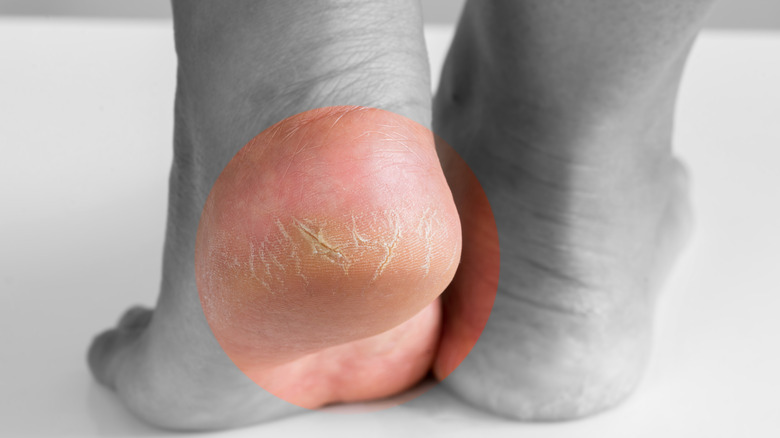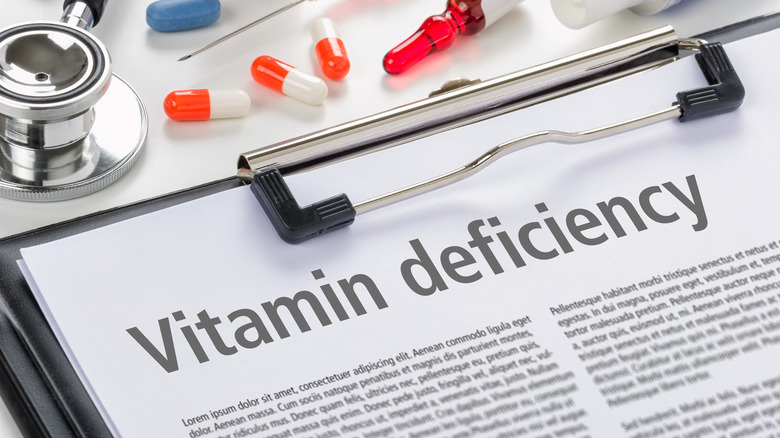Cracked Heels Could Be A Sign Of Something More
Dry skin of any kind is no fun, but a pair of dry, severely cracked heels can be particularly painful, notes Healthline. Often made worse during the colder months of the year, some people may find that their heels start to bleed.
Yet the development of cracked heels is not always a cause for concern. Frequently walking barefoot, callus buildup, or wearing shoes without sufficient heel support can all contribute to a case of cracked heels, according to Byrdie. In other instances, cracked heels can be the product of certain medical conditions such as diabetes, fungal infections, eczema, athlete's foot, and more. Cracked heels can also be the result of the natural aging process, adds Healthline.
While a less common cause of cracked heels than the previously mentioned factors, cracked heels can also indicate a vitamin deficiency, reports Byrdie. Although not seen as often in the United States, people in countries that experience widespread malnutrition may be more susceptible to vitamin deficiency-related cases of cracked heels. "Vitamin deficiency-related cracked heels are not as common as [cracked heels associated with] medical conditions," dermatologist Anna Guanche, tells Byrdie. However, if one's cracked heels are linked with a vitamin deficiency, experts explain that it will be related to vitamins C, B3, and E.
Cracked heels can be a sign of a vitamin deficiency
Those who are vitamin C deficient may be at risk for developing scurvy, a condition characterized by dry skin, bleeding gums, and hair follicle bleeding, often on the lower legs (via Byrdie). To help protect against a vitamin C deficiency, Healthline suggests eating vitamin C-rich foods such as oranges, Brussels sprouts, and kale.
A vitamin B3 deficiency can evoke symptoms including dry, irritated skin, diarrhea, or memory loss, per Byrdie. Healthline also notes that those who are vitamin B3 deficient may be more susceptible to a condition known as pellagra. In addition to scaly skin, pellagra can also cause weakness, abdominal pain, and a loss of appetite. Chicken breast, turkey, lentils, avocado, and salmon are all great sources of vitamin B3.
Without enough vitamin E, Byrdie tells us that vision problems, muscle weakness, premature aging, and dry skin can set in. Healthline suggests getting plenty of vitamin E from sources such as mangos, sunflower seeds, and almonds.
Consult with your doctor about supplementation if you suspect your cracked heels may be associated with a vitamin deficiency. "It's important to take an overall supplement if you are unable to get a good balance of vitamins in your diet," New York City-based board-certified dermatologist Orit Markowitz told Byrdie.


